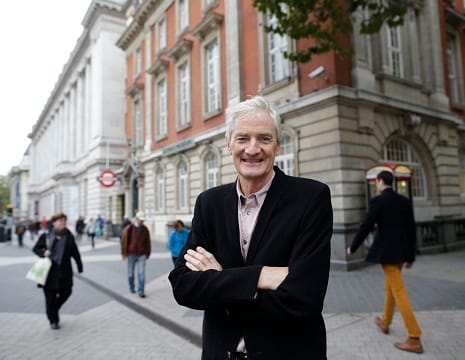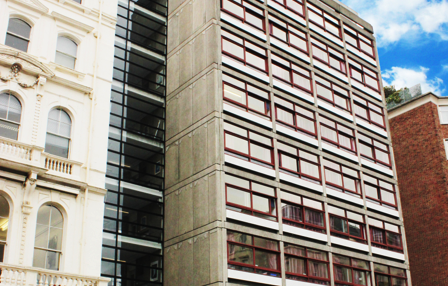What you may have missed over Easter
Carol Ann Cheah recaps some of the last month’s news stories

420: Thousands gather in Hyde Park, more than 50 arrested
As pro-cannabis protesters openly smoked the drug in Hyde Park on April 20 (an annual global celebration of cannabis, where calls for drug law reform take place), police ended up arresting 53 people. 16 were taken into custody, whereas 21 were released on bail and required to return to the station at a later date.
Many participants distributed cannabis leaf-shaped flyers and held picket signs, with one notable one reading “Ed Milliband wouldn’t want his own children criminalised for cannabis possession.” Dozens of police officers and prominent police signs saying “Possession of cannabis is illegal” were also noted at the event, with a Met Police Spokesman having said that “anyone seen by an officer openly smoking cannabis in Hyde Park or in the Westminster area could be issued with a warning or face arrest.”
The 420 Day event was organised by a reform-seeking group called NORML UK, along with the UK Cannabis Social Clubs (UKCSC). Speaking to the Guardian last year, Greg de Hoedt, president of UKCSC, gave the following statement:
“The cannabis community is crying out for legalization and regulation. We encourage growers to register with UKCSC because we want data we can present to authorities and say: this many people grow cannabis, this many people are growing for medicinal purposes; and we can also establish which strains work with which illnesses.”
Dyson School of Design Engineering
Launched in late March by Chancellor George Osborne and industrial engineer Sir James Dyson, the new Dyson School of Engineering is the first new engineering department set up at Imperial in the last two decades. The School will be housed at the former Post Office Building on Exhibition Road
The School will offer three courses next academic year: a 4-year MEng in Design Engineering; and two Masters programs, one in Global Design Engineering and another in Innovation Design Engineering (IDE). The latter, with a 30-year history formerly under the Department of Mechanical Engineering, is being jointly offered in collaboration with the Royal College of Art.
October 2015 will see the School’s first ever intake of students, where the initial cohort will first use Imperial’s existing facilities. By October 2017, teaching is expected to move to the new building: the former Post Office Building on Exhibition Road which was purchased by Imperial from the Science Museum.
The new School was made possible by a £12m donation from the James Dyson Foundation, which is the charity’s largest ever single gift. This is not the first time the Dyson name has been involved with Imperial College London: Sir James Dyson is a longstanding supporter of the IDE Masters program, and in 2014, Dyson Ltd announced a £5m investment in a new robotics lab within Imperial.
Bye-bye ouchies: invisible mending for the human body
Researchers at Imperial College London have developed a novel way to treat severe burns and assist in organ transplants. The team, led by Molly Stevens from the Institute of Biomedical Engineering, have designed sheets of silicon bandages coated with nanoneedles for this purpose.
The idea is that the healing capacity of tissues can be boosted by microscopically puncturing thousands of cells at once, delivering a shot of DNA with each puncture. There are many proposed uses for the resulting product; one major idea is to prevent unsightly burn scars during the healing process. At present, patients have to wait until the healing process is complete before treating any discoloration and uneven surfacing with plastic surgery, laser resurfacing and/or medical tattooing.
One of the key reasons of treatment by introducing DNA into cells is to reprogram how they respond to damage. However, inserting DNA into cells can be tricky: injections only allow for one cell to receive new DNA at a time, whereas using genetically engineered viruses (perfect as they are nature’s experts at hijacking cell DNA) cannot guarantee that none of the virus’ genes will contaminate the process - something potentially lethal. The nanoneedle silicon bandage, on the other hand, will be safer and more efficient at reprogramming whole tissues.
Big Brother really IS watching you: better video emotion/likeability tracking software to be developed
Tech outfit Realeyes, in conjunction with Imperial College London, have received a €3.64m grant from the European Commision for a project to improve the former’s emotion-tracking technology. Dubbed SEWA: Automatic Sentiment Analysis in the Wild, the research will be led by Professor Maja Pantic from Imperial, along with guidance from various organizations’ experts including AOL, Ipsos, Skype, and Kaplan.
Realeyes is known for its technology that uses standard computer webcams to measure subconscious responses from audiences as they view video content. Present-day facial coding technology and emotion analytics, including what Realeyes currently offers to its clients, can measure the six universal basic emotions (anger, fear, disgust, happiness, sadness and surprise), as well as engagement. Realeyes however says that ‘likeability’ is actually a complex emotional state, which automated emotion measurement technologies cannot currently detect. It also stresses how likeability is directly linked to sales,
With names like Adobe, Google, IKEA and Ford on its list of clients, Realeyes boasts collaborations with various Fortune 500 brands and a variety of publishers. SEWA, which will improve the current Realeyes platform, will build on a worldwide database of how ‘likeability’ is linked to emotional reactions. Realeyes says it has recorded the emotional responses of over 60,000 people in conjunction with answers to a series of ‘likeability’ questions relating to sharing content and recommendations.










